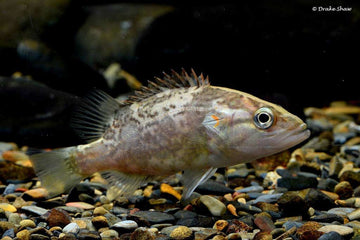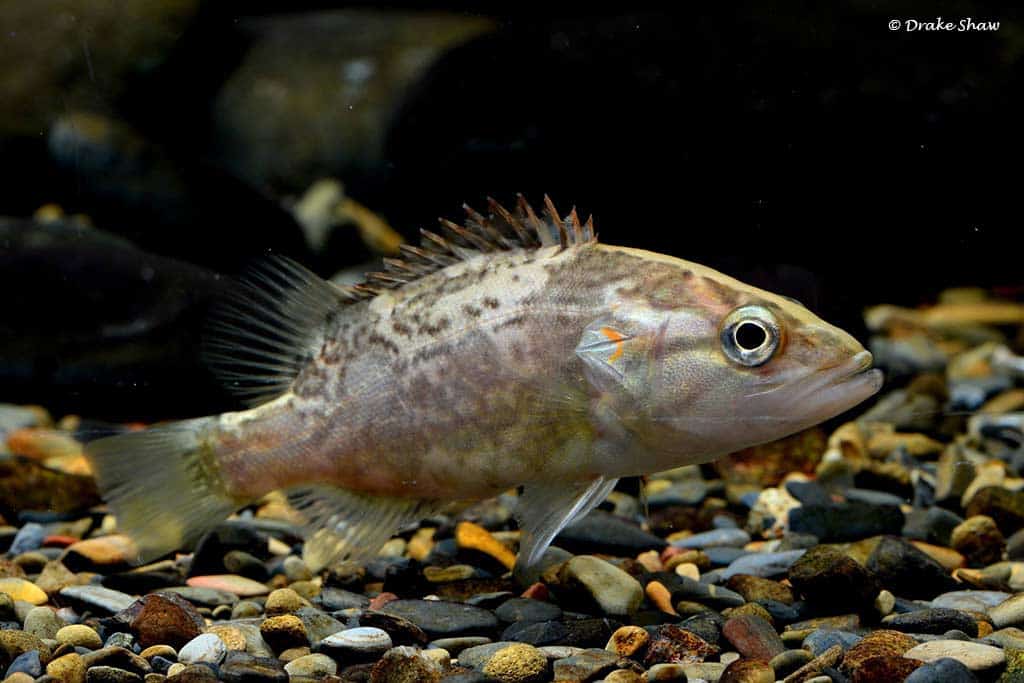Siniperca whiteheadi (Coreoperca whiteheadi) – Whitehead’s Chinese Perch (~21.8 cm)
-
Estimated Delivery:Jan 17 - Jan 21
-
UPS Next Day Air Shipping Charges 65$

Siniperca whiteheadi (Coreoperca whiteheadi) – Whitehead’s Chinese Perch (~21.8 cm)
A compact species of Asian perch in the Sinipercidae family, known for its moderate size (up to approximately 21.8 cm). It features a benthopelagic body shape and occupies both freshwater and occasionally brackish environments in East Asia. ([turn0search1])
Habitat & Behavior:
-
Found in tropical freshwater (and sometimes brackish) systems across China and Vietnam.
-
It inhabits mid-to-bottom layers of water (benthopelagic) rather than surface or deep pelagic zones. ([turn0search1])
Conservation Status:
-
Classified as Least Concern, with stable population levels in the wild. ([turn0search1])
Tank Setup:
-
Being a relatively small perch, it can be kept in a modest-sized aquarium (e.g., ~80–100 L), though more space allows for more natural behavior.
-
Use dark substrate, driftwood, and moderate planting to mimic native shaded habitats.
-
Maintain gentle water movement with good filtration to support its benthic lifestyle.
Water Conditions:
-
Exact parameters are not well-documented, but related species thrive in neutral to slightly acidic or alkaline, soft to moderately hard water.
-
Aim for stable conditions, moderate temperatures (18–24 °C), and well-oxygenated water.
Diet:
-
Carnivorous predator: likely fed live or frozen small fish, shrimp, and aquatic insects.
-
Similar to other Sinipercidae, it may be a reluctant eater of non-live foods. A predator’s instinct and natural diet should guide feeding.
Behavior & Compatibility:
-
Likely solitary and territorial, given its perch relatives’ behavior.
-
Best kept alone or with much larger tankmates that it won’t view as prey.

